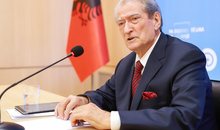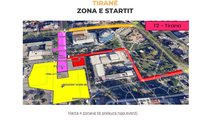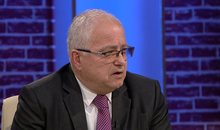
 Flash News
Flash News
Arrested a few meters from SPAK, the Special Prosecution seeks 17 years in prison for the drug 'boss'
Giro D'Italia starts today, here are the road axes that will be blocked in Tirana from 13:00-18:00
Who is the new Pope?
Pope Leo XIV greets the faithful for the first time in St. Peter's Square
"Freedom works", DP welcomes the US position
Euro at its lowest point, Tabaku: Who benefits from this situation?

PD MP Jorida Tabaku writes through a FB status that the Albanian today is poorer even in relation to the region, since with the salaries he receives, he can buy very few things, with the prices being high.
Tabaku emphasizes that "the import monopolies benefit from the situation, those of large wholesalers, informal dirty money and a sector that is increasingly entering the red risk zone; construction".
"Yesterday, the Euro reached its lowest point against our local currency. The exchange rate showed that 1 euro was exchanged for less than 100 allek.
Does the strengthening of the Albanian currency in relation to the Euro mean that our families are richer? That a middle-class Albanian buys more in the weekend bazaar? That an Albanian who works all day has more income? That a farmer who gets up in the morning and works the land until the sun goes down will get more for his product?
The answers to these questions are most likely, NO!
A stronger lek currency does not come as a result of an economy that is growing in its sectors. According to all economic indicators reported by INSTAT, the economy is growing only from construction. Who sponsors the construction? Salaries of Albanians?!
A strong local currency does not mean a richer Albanian, but an Albanian more dependent on imports. A stronger local currency means higher import costs, which increase even more when the Competition Authority does not do its job because monopolies rule the market.
A stronger local currency does not bode well for the middle class or the day-to-day worker. EUROSTAT figures comparing the purchasing power of Albanians in relation to the region show that we are poorer and have the highest prices.
A stronger local currency is not more income for the farmer; left in oblivion without a real reform, with primitive means in service, with a lack of subsidies, mistreated fiscally and with a monopolized market, it cannot send the product of our land to the table of our families or tourists.
So who benefits from the euro devaluation? Import monopolies, those of big wholesalers, of dirty informal money and of a sector that every day is more and more entering the red risk zone; construction.
So, those permanent suspects benefit who want this economic quagmire and corrupt system to remain eternally on the backs of every honest working Albanian, of the middle class and farmers. That's why they don't want circulation, preferring stagnation", writes Tabaku.
Latest news

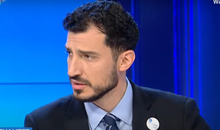
Mustafaj: Proud of the worthy campaign of the DP
2025-05-09 11:22:20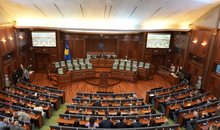
Constitution fails again, Kosovo still without a new Assembly
2025-05-09 11:06:55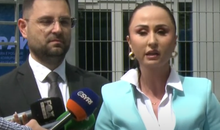





"Votes have no price", the US embassy in Tirana 'slaps' Rama
2025-05-09 10:06:49

Two young men arrested for supplying criminal groups with firearms
2025-05-09 09:45:19


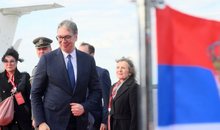

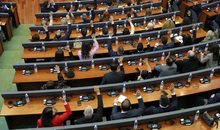

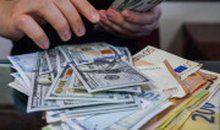
Foreign exchange/ How much foreign currencies are bought and sold today
2025-05-09 08:19:18
The gift that Berisha gave to Rama 'live'
2025-05-09 08:13:51
3 signs that show you are spiritually protected
2025-05-09 08:05:39

Bars can't hold back anymore, start increasing coffee prices, 4.7% more in April
2025-05-09 07:46:49

Horoscope, what do the stars have in store for you today?
2025-05-09 07:22:06
Unstable weather, afternoon brings rain
2025-05-09 07:01:29
Morning Post/ In 2 lines: What mattered yesterday in Albania
2025-05-09 06:45:46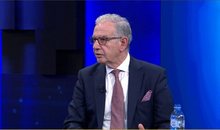

How did LaCivita change the DP campaign? Berisha: He studied the opponent
2025-05-08 22:49:51

David defeats Goliath
2025-05-08 22:15:50

Journalist: There are SPAK infiltrators in party headquarters
2025-05-08 21:55:15
Who is the new Pope?
2025-05-08 21:48:13
Berisha finally reveals when he will retire from politics
2025-05-08 21:33:46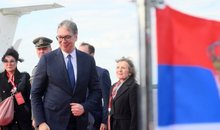


LaCivita in Lezha: Albanians will fire Edi Rama from his job
2025-05-08 21:11:20


Berisha: LaCivita chose us because he believes in Reagan's program
2025-05-08 20:48:40
He rejected America to serve Pogradec, Genti Çela tells about life in "Elevate"
2025-05-08 20:26:28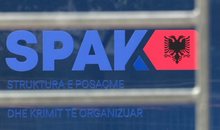




Pope Leo XIV greets the faithful for the first time in St. Peter's Square
2025-05-08 19:29:33




Photo session with LaCivitta in Tirana: For Great Albania
2025-05-08 18:40:18
Source: DASH decision a personal victory for Berisha
2025-05-08 18:30:10
Take off those crazy glasses and see where you've taken him?
2025-05-08 18:02:47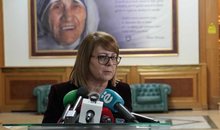
LDK files criminal charges against members of the incumbent Government
2025-05-08 18:02:00

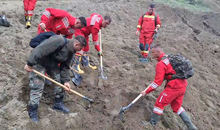
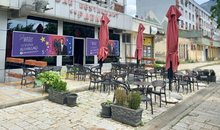

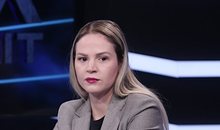

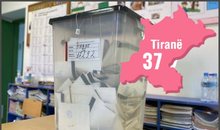
BIRN analysis: Tirana, the determining district for the future majority
2025-05-08 16:04:03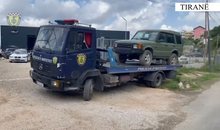




Chris LaCivita's contract with the DP, Berisha: 100% correct and clean
2025-05-08 15:11:11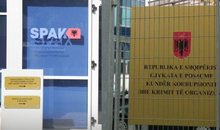
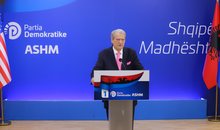
"These are the peak days", Berisha reveals when he will travel to the USA
2025-05-08 14:45:25

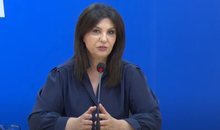
Endless boxes with filled-in ballots, DP demands separation of votes from Greece
2025-05-08 14:11:12


Photo/ Who are the 3 associates of Talo Çela arrested in Dubai?
2025-05-08 13:37:09

Hetimi për krimet zgjedhore, Altin Dumani zbarkon në Prokurorinë e Shkodrës
2025-05-08 13:06:21
DASH paves the way for Berisha, Alizoti: Great news on the eve of Great Albania!
2025-05-08 13:03:48
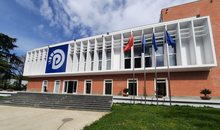
"Freedom works", DP welcomes the US position
2025-05-08 12:48:07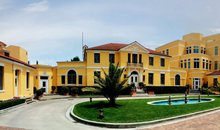
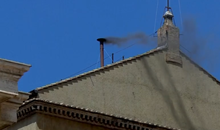
Black smoke rises from the Sistine Chapel, the Vatican still without a Pope
2025-05-08 12:26:18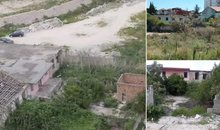





Davide Pecorrelli extradited to Albania
2025-05-08 11:29:04
'May 11, Albania will react', Xhaferri: Electoral criminals will pay
2025-05-08 11:21:46

Gjin Gjoni: Non Grata fell, Rama should get ready to go to McGonigal
2025-05-08 11:01:54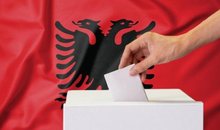
May 8th deadline for immigrants to vote in Greece extended by one day
2025-05-08 10:48:42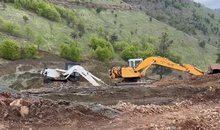
Collapse of massive chrome structure, still no trace of 29-year-old
2025-05-08 10:40:04
Vehicle bursts into flames in Paris Commune
2025-05-08 10:25:43
He gave land to his father and cousin, Basir Çollaku denounces the SP candidate
2025-05-08 10:16:16
